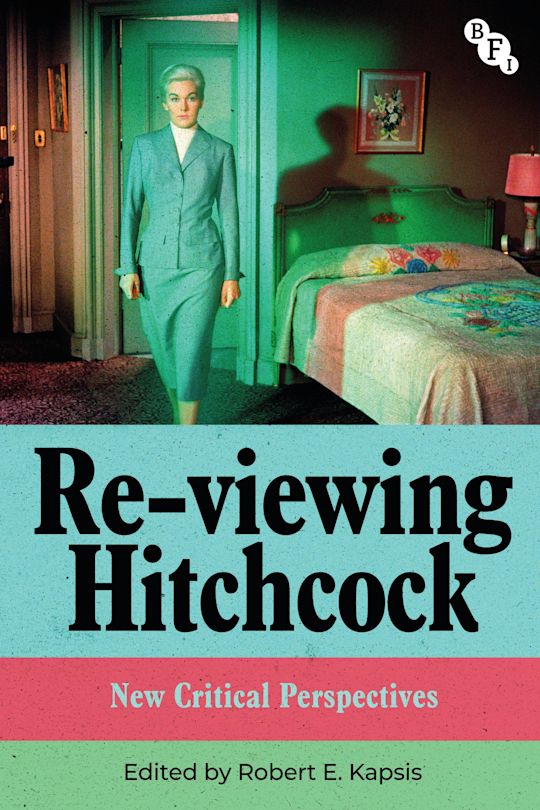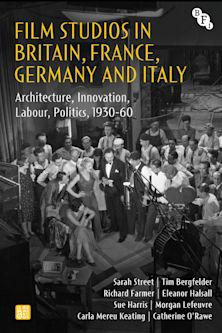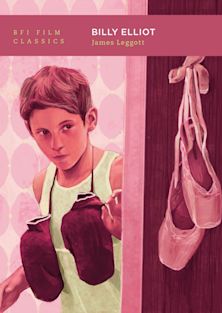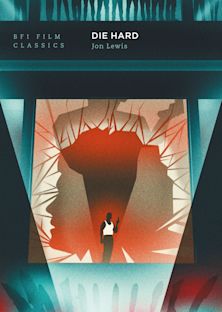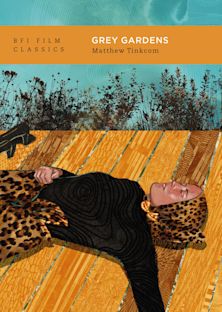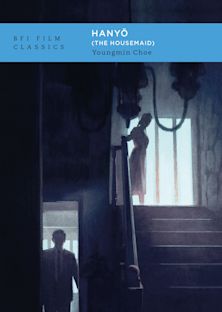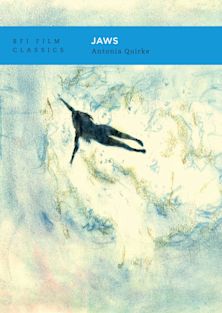Re-viewing Hitchcock
New Critical Perspectives
Re-viewing Hitchcock
New Critical Perspectives
Payment for this pre-order will be taken when the item becomes available
- Delivery and returns info
-
Free US delivery on orders $35 or over
Description
Re-viewing Hitchcock approaches Alfred Hitchcock's prolific career in film and television from a reception focus, charting the changing fortunes of the master auteur's work from 1926's silent The Lodger to his penultimate film, the controversial Frenzy of 1972.
Each of the chapters, written by eminent international film scholars, critics and historians, offers a detailed analyses of the historical reception of key Hitchcock films. These include films that have enjoyed consistent critical success, such as Rebecca (1940), Rear Window (1954), and North by Northwest (1959), as well as those that have received shifting degrees of critical and scholarly praise, such as Sabotage (1936), Rope (1949), Strangers on a Train (1951), Vertigo (1958), Psycho (1960), and The Birds (1963). The contributors assess the significance of these changing critical perspectives and the extent to which they influence the meaning and significance of Hitchcock's films and filmmaking.
The book also sheds light on Hitchcock's lesser-known television work of the 1950s and the 60s, reassessing its relationship to his film career. In addition, it expands the focus beyond Anglo-American contexts to consider how Hitchcock's films have been received and interpreted in Europe, Latin America, and Asia.
Table of Contents
Acknowledgements
Introduction by Robert E. Kapsis
PART 1: ENDURING TRIUMPHS
1. The Lodger (1926): The First True Hitchcock Film
Henry K. Miller
2. The Two Blackmails From 1929: A Reputation Crosses the Sound Barrier
Bryony Dixon
3. “No Manners at All and Always Seeing Things”: The Return of Hitchcock's Vanished Englishwomen in The 39 Steps (1935) and The Lady Vanishes (1938)
J.E. Smyth
4. Rebecca's Gendered Reception: 1941 to the Present
Patricia White
5. Shadow of a Doubt (1943) and Notorious (1946): Two Hollywood – and Definitively American – Masterworks
Thomas Schatz
6. Re-Viewing Rear Window (1954)
Janet Staiger
7. North by Northwest (1959): Nothing But Entertainment
Thomas Leitch
PART 2: CHANGING RECEPTIONS
8. “A director who can impose his own personality on his pictures”:
British critics and Sabotage (1936)
James Chapman
9. The Man Who Knew Too Much (1956): as a Critical Lens on American Culture
Paula Marantz Cohen
10. “She Isn't Quite Herself Today.” Psycho (1960): Before and After Queer Theory
David Greven
11. #MeToo and Angry Nature: The Changing Tides of Approaches to The Birds (1963)
Lucy Bolton
12. Vertigo (1958) and Marnie (1964): Two Reception Histories on Steroids
Robert E. Kapsis
13. Rope (1948): A Late Bloomer
Neil Badmington
PART 3: FILMS ON AN UPWARDS TRAJECTORY
14. Downhill (1927)
Henry K. Miller
15. Under Capricorn (1948)
Richard Allen
16. Trouble with Harry (1955)
Sidney Gottlieb
17. Mr. and Mrs. Smith (1941)
Elizabeth Bullock
18. The Wrong Man (1956)
Jason P. Isralowitz and Robert E. Kapsis
PART 4: FOUR RECEPTION ANOMALIES
19. Hitchcock and His Critics: The Fall and Rise of Strangers on a Train (1951)
Robert E. Kapsis
20. Frenzy (1972): “Dark, Nasty, Full of Bile” …and a Masterpiece?
Tania Modleski
21. 'One of the most uneven films in the history of cinema':
Topaz (1969)
James Chapman
22. What the Two Versions of The Man Who Knew Too Much Reveal About Film Criticism in the United States and Britain
Robert E. Kapsis
PART 5: HITCHCOCK'S TELEVISION SERIES
23. The Final Frontier: Hitchcock's Television Work
Thomas Leitch
24. Towards a New Appreciation of Alfred Hitchcock Presents, The Alfred Hitchcock Hour,
and Shamley Productions
Christina Lane
25. Life after Death: Preserving and Promoting Hitchcock's TV Persona
Robert E. Kapsis
26. Travels in Hitchcock's Multiverse
Joel Gunz
PART 6: GLOBAL HITCHCOCK: BEYOND THE US AND THE UK
27. Hitchcock and L'Écran français: At the Roots of the Politique des auteurs?
Tifenn Brisset
28. Hitchcock in Germany-A Germanic Hitchcock?: Transnational Genre, Art Cinema, and Auteurism in 1970s/1980s Filmkritik and in the Work of Harun Farocki and Christian Petzold
Jaimey Fisher
29. Alfred Hitchcock and Italian Film Criticism: “A Good Second-Rate Director”
Francesca Cantore and Andrea Minuz
30. Alfred Hitchcock's Cinema in the USSR and Post-Soviet Russia: Loud Absence
Sergei Kapterev
31. Tracing Hitchcock in South Korea: From I Confess to Decision to Leave
Hye Seung Chung
32. Hitchcock in Japan: Invisibility and Hypervisibility
Daisuke Miyao
33. Introducing Hitchcock to Communist China: Two Decades of Reception and Popularization
Sun Yi
34. Hitchcock in Spain
Dona M. Kercher
35. Hitchcock's Audiences in Mexico: From Movie Theaters to TV
Ana Rosas Mantecón
36. Hitchcock in Argentina: Some Preliminary Findings
Dona M. Kercher
Coda A A “Signature Pattern”: The Importance of Music in Hitchcock's Films
Jack Sullivan
Coda B Deserter or Honored Exile? Views of Hitchcock from Wartime Britain
Charles Barr
Index
Product details
| Published | Feb 19 2026 |
|---|---|
| Format | Paperback |
| Edition | 1st |
| Extent | 472 |
| ISBN | 9781839026195 |
| Imprint | British Film Institute |
| Illustrations | 150 colour illus |
| Dimensions | 10 x 7 inches |
| Publisher | Bloomsbury Publishing |
Reviews

ONLINE RESOURCES
Bloomsbury Collections
This book is available on Bloomsbury Collections where your library has access.









